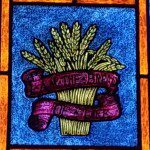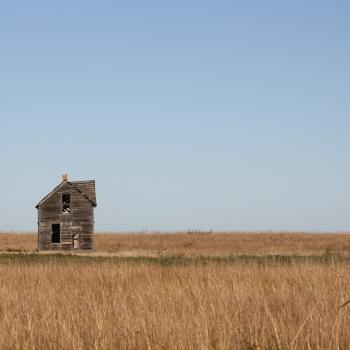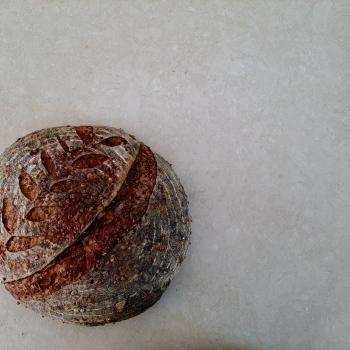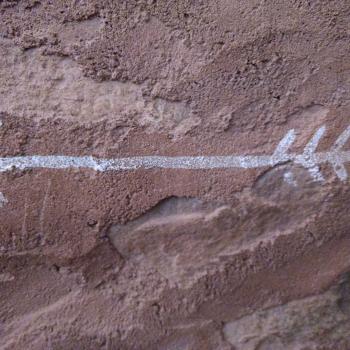
The crick behind our house flooded a few weeks ago. It went like this:
The great shaggy feet of draft horse white clouds tugged a gray skein across the sky. It rained, a mist chased by muscular drops that soddened the earth and made the soybean fields course with brown rivulets. The Mennonite cemetery north of town became a reflecting pool. Usually tame Black Kettle Creek got all riled up and raucous across the center of town. The park and then the street behind our house went under. The sump pump snored and gulped. Volunteer firefighters filled sandbags and stacked them on pallets under the halogen light staging area of our church parking lot.
And then the rain ended. The messy brown flood dropped like a scowl and slipped south out of town toward Wichita and Little Rock and New Orleans.
Life, like our little Black Kettle Creek, has a wildness to it, a go-its-own-way-ness that sometimes says a hearty “nope” to our best laid plans. Sometimes it’s painful. And sometimes you have to struggle through. But there’s a grace in knowing when not to push, when not to find a way, when to just stand at the edge of the muddy flow and say “not today.” The Lord willing and the crick, well, it rose.
The glory of the natural world is that, like a baby, it comes to us on its own terms. In it’s great strength, in being what it was made to be, nature praises God. “Let the floods clap their hands,” sings the psalmist (Psalm 98:8). Heaven and earth are filled with God’s glory.
Before something mighty we have to let ourselves feel a little awe. Even a flooded creek, relentlessly seeking its own level, should inspire awe. Water follows its own call. And we fling sandbags and check sump pumps but all that downstream movement has its own kind of liquid gravitas, and we’ve just got to stand back and take it in.
Awe can be a sign that points us toward God. God is. Recognize the immutability of that statement and you’ll start to get close to what the Scriptures speak of as the “fear of the Lord.” A thousand years in God’s sight “are like yesterday when it is past.” Our mortal lives are “like a dream” (Psalm 90:4-5). And Proverbs tells us that “fear of the Lord is the beginning of knowledge,” no doubt because without a proper perspective on God’s vastness compared to the fleetingness and fragility of our lives and projects, we cannot hope to think rightly about the world (1:7).
To be cognizant of God’s greatness is also to be open to his love. Psalm 113 speaks of God as the one who “looks far down on the heavens and the earth” and yet who “raises the poor from the dust and lifts the needy from the ash heap” (113:6-7). Who are we that the Lord is mindful of us (Psalm 8)? That’s maybe the most awe-inspiring bit: God in his unchanging power loves us with an unchanging love.
All of that from a flooded crick.












